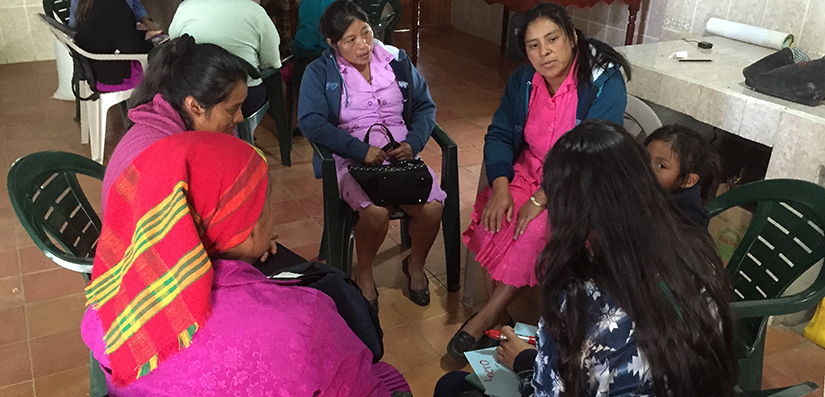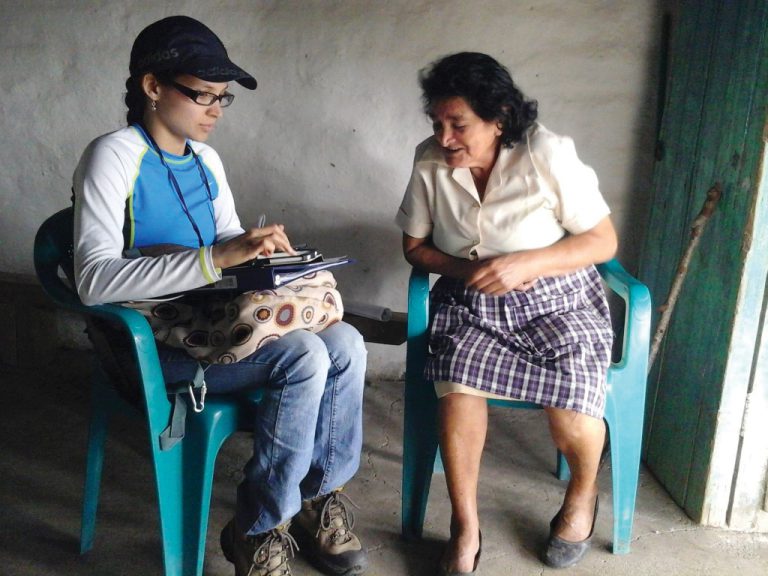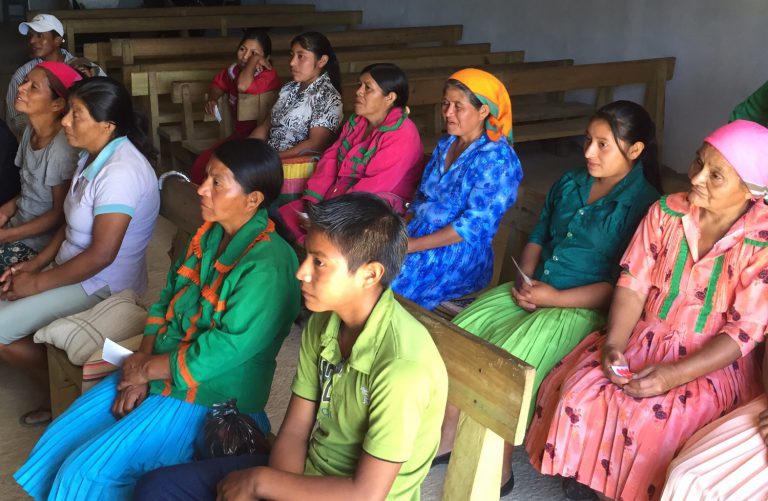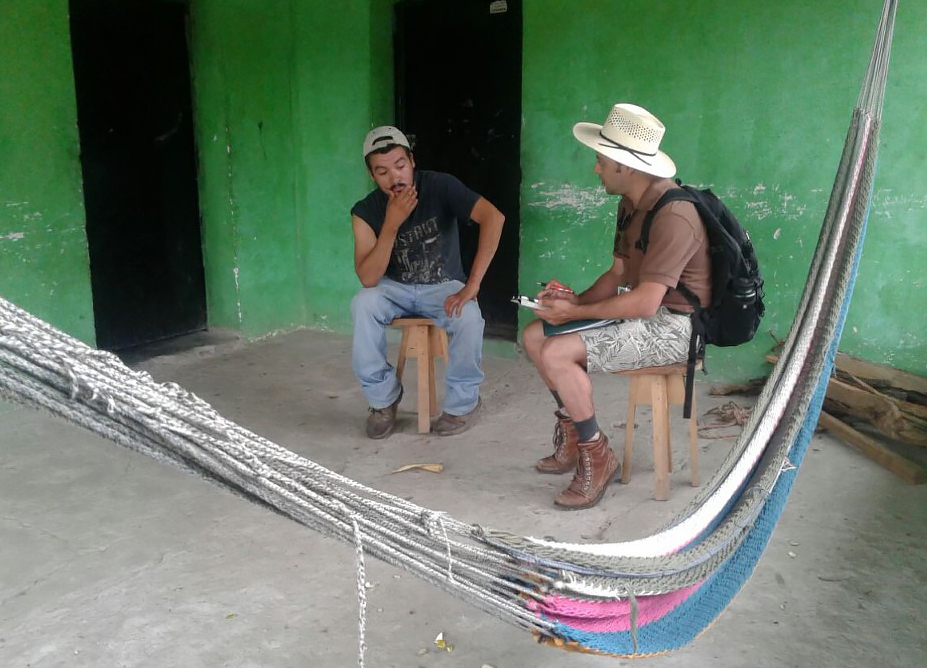

Editor’s note: This blog post by Janelle Larson was originally a presentation given at the Horticulture Innovation Lab’s 2017 annual meeting in Guatemala.
Larson is an associate professor in agricultural economics at the Pennsylvania State University and leads the Horticulture Innovation Lab project focused on empowering women through horticulture in Honduras.
Gender norms define the roles and responsibilities of women and men at the individual, household, community and societal level. We have found this to be a factor in western Honduras where patriarchy permeates many aspects of life.
Our findings indicate how gender norms influence and pervade seven different key aspects related to our project:
- Gender matters in agriculture
In agriculture production, women’s work is often unrecognized and under compensated. Women’s participation in production — mostly in harvesting and the processing phases of high-value crop chains — is relatively large. According to our household survey conducted in 2016, nearly 20 percent of women in our study area work as day laborers, often for coffee harvest, and approximately 6 percent of women work in their family fields. Women are also heavily involved in home garden production. They are responsible for approximately 54 percent of the activities of home garden production, which is mostly for home consumption.

- Gender matters in household decision-making
Within the household, women have little control over household income, creating the greatest disparity between men’s and women’s empowerment in the area. Fewer than half of women are economically active and most do not have control over income-generating assets of the household. This can have negative implications for dietary diversity and food security. The inability of women to control the economic assets and decisions of the household also pertains to accessing credit. According to a baseline study conducted by IFPRI for the ACCESO-Honduras project, when the household receives credit, men generally decide when to access credit and how the credit is used. - Gender matters in dietary diversity
One key impact area is dietary diversity, which in this part of Honduras is very limited. Most adults in the region report only 3.2 food groups consumed, on average (IFPRI, 2013). Limited dietary diversity negatively affects women and children. Our findings confirm that dietary diversity can be improved through a home garden, which can increase consumption of fruits and vegetables. There is still much we hope to learn in order to determine how to best translate horticulture production into improved consumption practices. One potential strategy is to target women’s empowerment, particularly in control over agricultural assets, which links to the increased household consumption of fruits and vegetables and a higher mean number of food groups consumed.
- Gender matters in food security
According to the IFPRI baseline survey, single female-headed households are more likely to experience severe and moderate hunger, although in this region extreme food insecurity is relatively uncommon. Despite this, there are a larger number of households that experience temporary deprivation owing to low income or low resources; this is especially the case for single female-headed households. Households in which women have little control over assets related to agriculture production have a higher likelihood of experiencing moderate or severe hunger, demonstrating the importance of women’s empowerment for food security.

- Gender matters in institutions
Informal producer groups and formalized producer associations are critical, as they provide access to inputs, credit, markets, technical assistance and even community development for smallholder farmers. However, these groups are dominated by men and not responsive to the needs of female associates and community members. Credit is limited for all small producers, but even more restricted for women. Women received only 16 percent of the loans and 11 percent of the loan value.

- Gender matters to men
When we are considering gender issues, we cannot only look at women’s participation. Gender norms also have negative consequences for men. Based on our experiences in the area and conversations with key informants, men in this region are at great risk for alcohol abuse, a problem that is bound up with expressions of masculinity. This leads to detrimental impacts on family relationships and limits the ability of the household to invest income productively. A healthy conception of masculinity benefits men as well as others in the family.
- Gender matters in development
We have found that gender norms in western Honduras are deeply entrenched. Gender norms and the predominance of a patriarchal structure limit women’s personal and economic empowerment and their ability to effectively participate in community development. This can also influence overall economic, societal and agricultural development.
Whether it is agricultural production, connecting to markets, or improving household nutrition, gender intersects with every aspect of improving livelihoods.
Led by researchers at Penn State in partnership with the Panamerican Agricultural School, Zamorano, this project is supported by the Horticulture Innovation Lab with funding from the U.S. Agency for International Development as part of the U.S. government’s global Feed the Future initiative.
More information:
- Project information: Empowering women through horticulture
- Related blog: 9 tips for incorporating gender into a research project
- More 5-Minute Lesson blog posts
